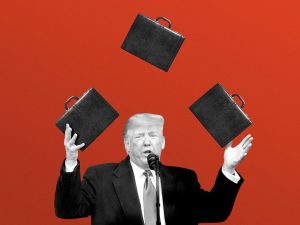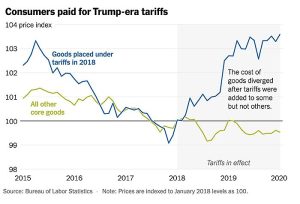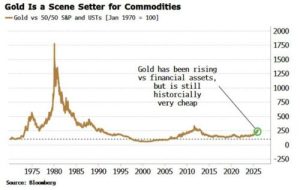The Decline of Authenticity in Public Relations

Data Monitoring concept with cartoon people in vector flat design
In the modern marketplace of attention — an increasingly shallow pool where every brand screams “Look at me!” — authenticity has become not merely a virtue but a survival mechanism. The tragedy is that so many practitioners of public relations, the very craft of persuasion, have become the chief architects of deception. What was once the art of credible storytelling has, in too many hands, devolved into a carnival of contrived hashtags, recycled platitudes, and synthetic sincerity. William F. Buckley once wrote that “truth is a demure lady, much too proud to prostitute herself for the mere asking.” In today’s digital circus, she has been shoved onto the midway, competing with influencers, AI-generated spokesmodels, and algorithmic empathy. But make no mistake: the public can still smell phoniness like a shark smells blood. Authenticity is the only remaining currency that spends in a culture drowning in counterfeit. The Edelman Trust Barometer (2024) reported that only 42% of Americans trust business leaders to do what is right — a precipitous drop from the early 2010s. In the same study, 71% of consumers said that authenticity influences their buying decisions more than status or even price. The implication is clear: credibility, once assumed, must now be earned daily through transparency, humility, and consistent truth-telling. Harvard Business School professor Frances Frei puts it bluntly in her research on authentic leadership: “When trust breaks down, it almost always happens because of a perceived lack of authenticity.” Frei’s studies show that organizations that engage in “performative virtue signaling”—loudly proclaiming social values they do not practice — suffer measurable declines in consumer engagement and employee morale. Consider Pepsi’s now-infamous 2017 commercial featuring Kendall Jenner attempting to solve social unrest with a can of soda. It was an act of tone-deaf theater so breathtaking in its cynicism that it became a case study at Wharton on what happens when brand messaging is divorced from reality. The campaign cost millions, yet the damage to credibility was incalculable. The public smelled the artifice immediately. Stanford University’s Professor Jennifer Aaker, whose research focuses on the psychology of meaning in marketing, has demonstrated that “brand authenticity is built when there is congruence between what a company says, what it does, and how it is perceived.” Her landmark paper, “Authenticity in Branding” (Journal of Consumer Research, 2021), demonstrates that audiences form trust not through perfection but through perceived integrity. In simpler terms, admitting flaws builds more credibility than pretending they don’t exist. Patagonia exemplifies this principle with its now-legendary “Don’t Buy This Jacket” campaign, which invited consumers to purchase less, not more. The honesty was radical, the sales were explosive, and the brand’s cultural cachet skyrocketed. It was proof that transparency can be profitable. Contrast that with Volkswagen’s “Clean Diesel” deception — a masterclass in corporate duplicity. Once the scandal broke that VW had rigged emissions tests, it lost $30 billion in market value and spent years clawing its way back from the reputational abyss. The academic literature is unanimous on this point: the short-term gain from deception is dwarfed by the long-term loss of trust. Authenticity is not a mood. It is a management principle. In their 2019 study published in Public Relations Review, scholars Molleda and Ferguson identified authenticity as “a critical antecedent to organizational legitimacy.” They argue that PR professionals must act as “internal conscience builders,” ensuring that messaging reflects absolute values rather than aspirational slogans. What this means, practically, is that modern PR must begin not with the press release but with the boardroom. The authentic message must be rooted in authentic behavior. As Buckley might have quipped, “It is better to be accused of dullness than of deceit.” A 2023 study from the London School of Economics examined 120 global companies and found that firms that aligned their public messaging with internal policies — particularly those related to social responsibility and employee treatment — outperformed their less transparent peers by 22% in brand equity growth over five years. The conclusion is empirical: honesty pays dividends. The rise of generative AI presents a fresh peril to authenticity. When messages can be fabricated at an industrial scale, the human voice — honest, imperfect, and textured — becomes the ultimate differentiator. The irony is delicious: in an era obsessed with artificial intelligence, it is the authentic intelligence of human sincerity that cuts through the noise. In a 2024 MIT Sloan Management Review study, consumers were asked to evaluate AI-generated PR statements versus human-written ones. The human-authored messages were rated as 37% more trustworthy, even when both contained identical factual information. The difference lay not in content but in perceived sincerity — the human cadence, the vulnerability, the emotional resonance. Public relations must reclaim its lost dignity by reestablishing authenticity as its guiding principle. The PR professional of the future is not a spin doctor but a truth sculptor — shaping perception by aligning it with reality, not distorting it. Consider the late Paul Newman’s “Newman’s Own” brand, which donates 100% of its profits to charity, with Newman himself refusing to accept a penny. That authenticity was not manufactured; it was lived. It turned salad dressing into an institution. In contrast, we now see corporations producing “empathy campaigns” written by committees of lawyers and brand strategists who have never met a genuine emotion in their lives. As the sociologist Erving Goffman wrote in “The Presentation of Self in Everyday Life,” “We are all actors upon the social stage—but the audience knows when the actor doesn’t believe his own lines.” Ultimately, the choice is straightforward. You can manipulate or you can persuade. The manipulator seeks control; the persuader seeks connection. One is mechanical; the other, human. Authenticity is not just good ethics — it’s good economics. In an age where truth itself is under siege, brands that dare to be real will be the last ones standing. Or, as Buckley might have said with his characteristic sting, “Better to tell the truth badly than to tell a lie beautifully.” Michael Levine’s new book, “Authentic P.R.,” will be released in mid-2026.







